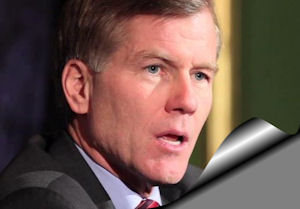
Bob McDonnell: Turning a new page on what it means to be a fiscal conservative. Erosion of the user-pays doctrine. Less transparency for tax hikes.
by James A. Bacon
Governor Bob McDonnell may be a Republican, and he may deem himself a conservative, but he has single-handedly accomplished what two previous Democratic governors never did, and that is expand the scope of government in a way never before contemplated in Virginia. His contribution to the philosophical pollution of governance is the conceit that (a) transportation is a core function of government, and that, therefore, (b) Virginia is justified in paying for transportation out of General Fund revenues, not on an episodic, raiding-the-till basis as in the past, but as an enduring principle.
The governor explained his logic in a press release issued yesterday following the agreement between House and Senate conferees over transportation funding legislation:
Transportation is a core function of government. The responsibility of state government to provide for roads and rail is equal to our responsibility to provide world-class schools for our children, public safety in our communities, and health care services for our citizens. That means transportation must be treated like a core function of government, and it must share in our growth in general fund revenues to a greater extent than currently structured. This conference report will generate almost $200 million per year in year five in new general fund money for transportation. This is a recognition that transportation is vital to the future prosperity and economic well-being of the Commonwealth, and it must be treated as such.
True, transportation is a core function of government. But unlike education, corrections, Medicaid and other core functions of government, transportation has its own dedicated revenue streams. There is no dedicated revenue stream for public schools — parents of students do not send school districts a check every month. There is no dedicated revenue stream for corrections — prisoner inmates do not pay government for the privilege of their incarceration. And so it goes for almost everything paid for by the General Fund.
McDonnell’s pernicious innovation, apparently agreeable to senior members of the General Assembly, undermines a core precept of budgeting, the division between the General Fund, which pays for core programs lacking a major revenue stream, and the Non General Fund, which encompasses dedicated revenue sources (such as college tuition) that support specific endeavors (such as the university system).
As it happens, transportation has multiple dedicated revenue streams including, the motor fuels tax (aka the gas tax), a sales tax on automobile sales, an automobile registration fee, annual contributions by the federal government (based largely on the federal sales tax) as well as one percentage point of the state’s 5% sales and use tax. There is no need to raid General Fund revenue. If legislators want more money for transportation, then increase one of the transportation-related taxes!
The political problem is that such action would constitute a “tax increase” on a highly visible levy. Of course, the new scheme approved by Senate-House conferees will entail tax increases, too, including a o.3 percentage point addition to the sales tax, an increased tax on auto sales, an annual fee for alternate fuel vehicles and a tax on wholesale gasoline sales that generate new revenues as the price of gasoline rises. The difference is that rather than making the tax increase transparent — say, by raising the motor fuels tax from 17.5 cents per gallon to 30 cents per gallon — the added revenues are scattered over a wide variety of sources that the public is less likely to see. Best of all (from the politicians’ point of view), the tax on wholesale gasoline prices will be invisible to the consumer.
McDonnell’s response to raising the motor fuels tax is that it is “no longer a dependable, long-term sustainable source of transportation revenue.” There is a modicum of truth to that statement. As Americans shift to more fuel-efficient cars and alternate-fuel vehicles and as they throttle back their driving, the motor fuels tax will decline over time. But the solution is simple: Raise the friggin’ tax! That’s what legislators propose to do indirectly by shifting to a percentage tax on wholesale sales. The advantage — to politicians — of the wholesale tax is that it generates new revenue automatically as gasoline prices rise. In other words, it amounts to a tax increase on auto-pilot, no messy legislation, debate and headlines to deal with. Thus, the politicians avoid the kind of public accountability they would endure by jacking up the motor fuels tax every few years, as needed.
While the final legislative package is less odious than the Governor’s original proposal — which would have scrapped the gasoline tax entirely in favor of a sales tax increase — it still undermines the user-pays principle of transportation taxation. That’s OK, say defenders of this abomination, on the grounds that “everyone benefits from investments in transportation, so everyone should pay.” That kind of logic is even more destructive than the transportation-is-a-core-function-of-government — and the topic of a future blog post.


